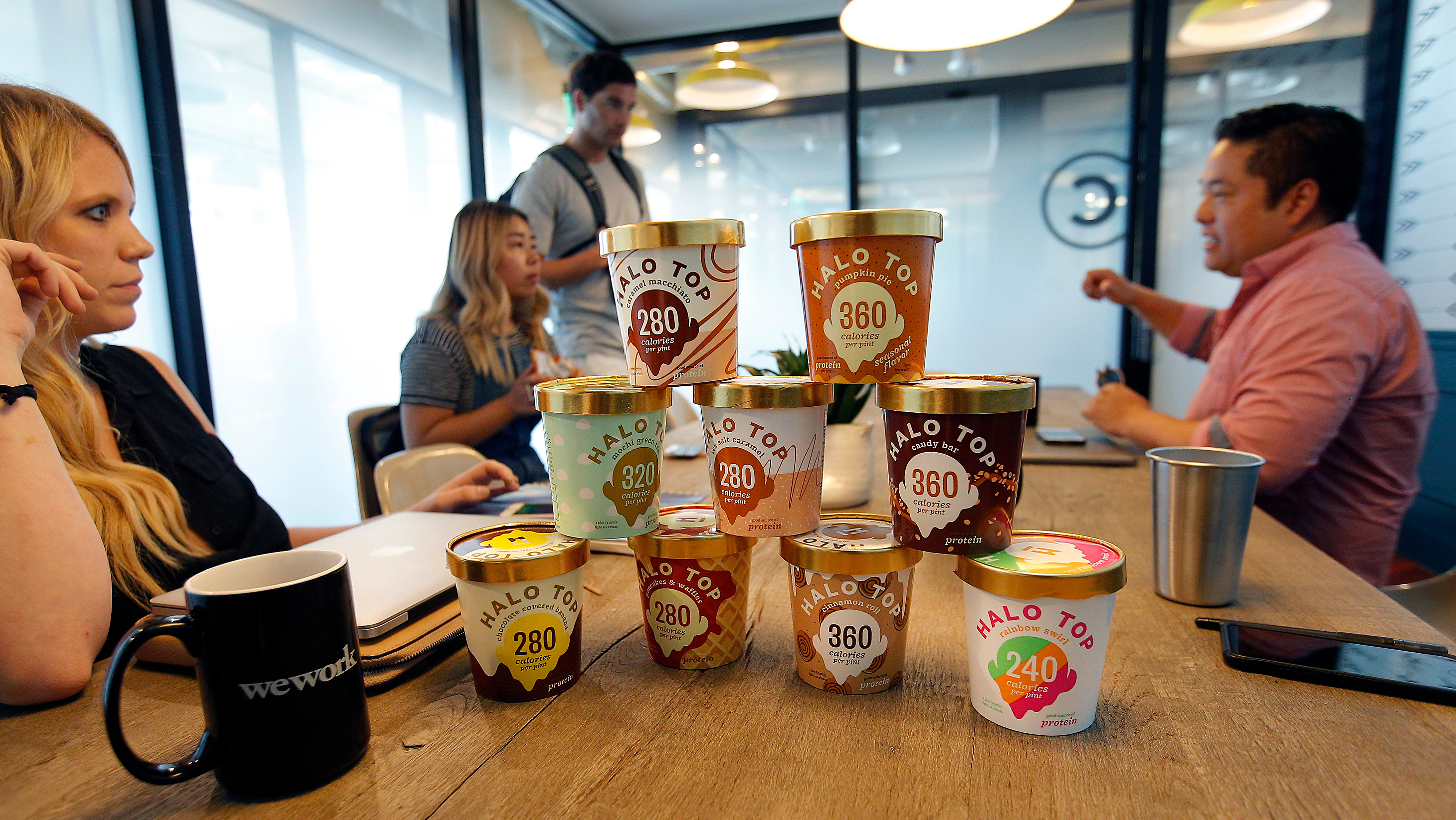Report: Low-Calorie Ice Cream Might Just Be An Oxymoron
We all scream for ice cream. So too have doctors and other health experts, in futility and for decades now, about the delicious and unhealthy nature of America's favorite frozen treat.
Presently, the take-home ice cream market is as crowded as it's ever been. There are still your "full-fat" varieties, the traditionally thick and creamy dessert treats. There's frozen yogurt, which is lower in fat but still derived from cultured milk. There's the growing popularity of gelato and its own permutations, along with non-dairy frozen desserts, or increasingly popular "light" ice cream options like Halo Top.
However, in addition to some taking umbrage with the idea of "diet ice cream" out of hand, skepticism remains about just how much healthier any kind of ice cream can really be. In that spirit, a recent Consumer Reports study put Halo Top and other non-dairy ice creams to the test, with 13 traditional and non-traditional vanilla offerings being evaluated for both quality and relative nutritional value. Their method saw that "Each product was rated for taste and texture along with healthiness—including nutrition and ingredients—or the lack of it."
It likely won't come as much of a shock to hear that, while the vegan and low-calorie options were moderately healthier, ice cream is still ice cream, and should thus be enjoyed in moderation:
The nondairy desserts had 2 to 14 grams of saturated fat per serving; the full-fat ice cream had 4 grams of saturated fat. Sugars also varied, from 4 grams up to 16 grams per half-cup serving. Still, the nondairy products we tested tended to lack many of the additives found in the light/low-fat ice creams. And they were tasty, too, with three getting Very Good sensory scores.
And look, it's Friday. The Takeout really isn't trying to get into the business of scolding people about their dessert preferences. We stand on the record as proudly pro-dessert, if anything. But the report offers another valuable reminder that health-food advertising is still just another kind of marketing, and that it's probably not nutritionally advantageous to eat a full pint of any dessert.
